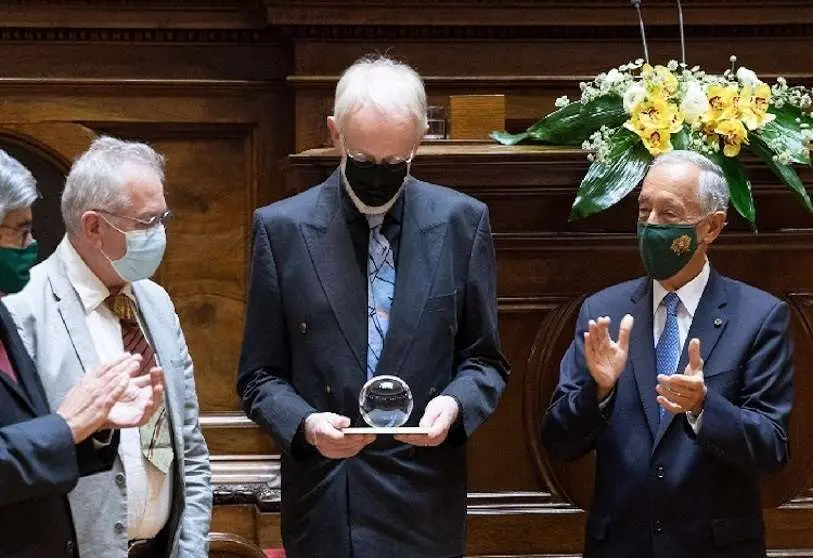Council of Europe rewards scientific work against climate change in the Mediterranean

The Council of Europe has awarded its North-South Prize to the Mediterranean Network of Experts on Climate and Environmental Change (MedECC), created in 2015 with the support of the Secretariat of the Union for the Mediterranean (UfM) and the United Nations Environment Programme (UNEP).
The award was presented by the President of Portugal, Marcelo Rebelo de Sousa, at the Assembly of the Portuguese Republic in Lisbon on 9 November. The award was accepted by MedECC coordinators Wolfgang Cramer and Joël Guiot.
With this award, the Council of Europe recognises the contributions made by this network of more than 190 environmental scientists from 25 countries to the first scientific assessment report on the impact of climate and environmental change in the Mediterranean basin. The MedECC Network had already been nominated by the UfM in 2020 on the occasion of the 25th anniversary of the Barcelona Process.
The North-South Prize jury recognised the work of MedECC as "an outstanding example of the potential of collaboration between states and societies to address the challenges of climate change and environmental sustainability, as well as a response to the need for scientific and expert cooperation to produce knowledge-based analyses as a sound basis for action".
Over six years, nearly 200 scientists from the MedECC network assessed more than 3,800 articles and scientific literature reports on current risks to the Mediterranean basin, presenting their findings in a comprehensive report for the first time. This comprehensive assessment was made possible thanks to the voluntary contributions of all these experts.
Created in 2015 with the support of the UfM Secretariat and UNEP and during the preparations for the COP21 UN Climate Conference in Paris, the MedECC network now counts more than 700 scientists from 35 Mediterranean and European countries.
"It is very encouraging for us and for all our colleagues that the Council of Europe so prominently recognises the role of this work for the people of the region; this now needs to be followed by political action to prevent further loss of life and property," said Professor Wolfgang Cramer, CNRS (France). "The exchange of experiences between scientists from almost all Mediterranean countries was an enormously rewarding part of this work," said Dr Joël Guiot, also from the CNRS. "Adaptation to these risks and mitigation of their causes is possible, but much stronger financial efforts are needed than those proposed by COP26," he warned.
For his part, the secretary general of the Union for the Mediterranean, Nasser Kamel, recalled that "the Mediterranean Sea is a fragile ecosystem that suffers from various ills such as loss of biodiversity, overfishing, pollution, coastal degradation and marine litter, among others". Therefore, "policies for the sustainable development of Mediterranean countries are urgently needed to mitigate these risks, but policy makers lack adequate information", and in this context, "the MedECC initiative, supported by the UfM Secretariat, is an outstanding example of the potential of the Euro-Mediterranean scientific and political community working together to create solutions for a better future", he concluded.








